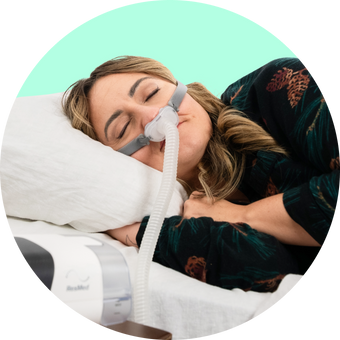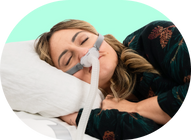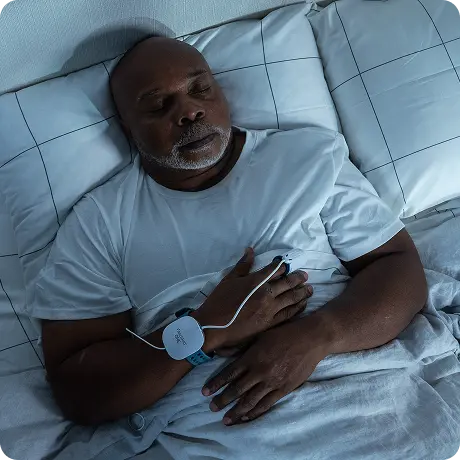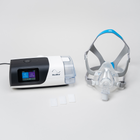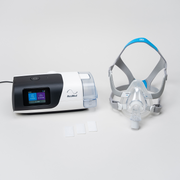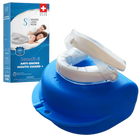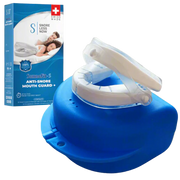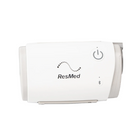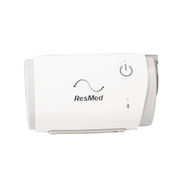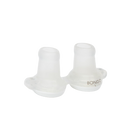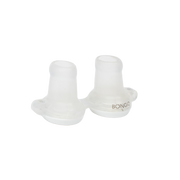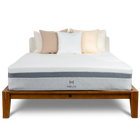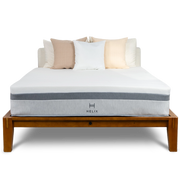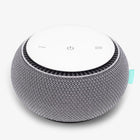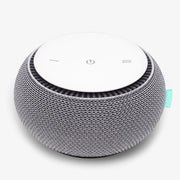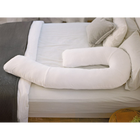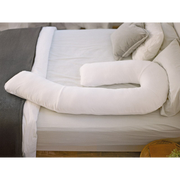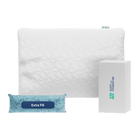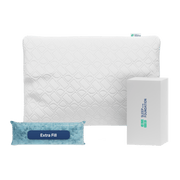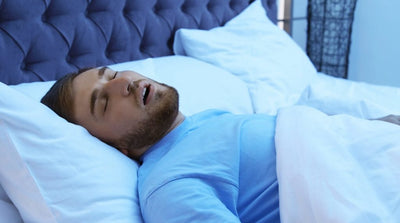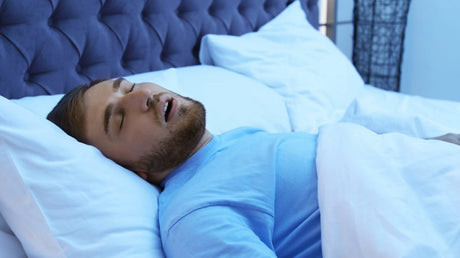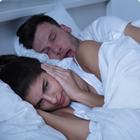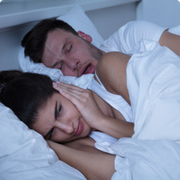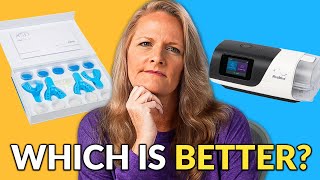AirSense™ 11 Basics Bundle with Full Face Mask
The gold standard for CPAP therapy, the AirSense™ 11 automatically adjusts pressure levels based on your breathing patterns throughout the night. A crisp, color LCD touchscreen lets you customize the device’s settings and view sleep data.
Somnofit-S Anti-Snore Mouth Guard+
The SomnoFit-S is an FDA-cleared mandibular advancement device (MAD) that works by gently shifting your lower jaw forward to help keep your airway open while you sleep.
ResMed AirMini™ AutoSet Travel CPAP Machine
The ResMed AirMini™ is a small machine that's perfect for using on the go. The portable device offers waterless humidification, three different pressure settings, and an option to control the device via an app that also tracks key sleep metrics.
AirAvant Bongo Rx EPAP Starter Kit
Bongo Rx is a compact, reusable CPAP alternative that’s FDA-approved for treating mild to moderate obstructive sleep apnea—no electricity or batteries needed.
